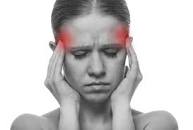Wondering about triggers for migraines? For effective choice of treatment or home remedies to cure your migraines? Then this post is for you. But, first what is migraine?
Migraine is a genetically-influenced disorder resulting in mild or severe episodes of headaches. According to 2018 scientific research, up to 12-15 % of the world population suffer from migraines. (1,2)
There are several home remedies for migraines and headaches, but it’s better to understand the triggers for migraines so you may handle the effects effectively.
Here are 12 science-backed causes of migraine headaches that you may consider.
Diet
A 2019 medical research found that of all the lifestyle practices, nutraceuticals and diet plays a vital role in triggering migraines.
Dietary habits form the basis of every lifestyle disease. All non-infectious diseases are linked to poor dietary practices.
Recently in 2020, researchers found that a low glycemic diet is good for migraines. Gluten in wheat products may trigger migraines in susceptible individuals.
A nutritious, plant-based diet free from chemicals and preservatives is ideal for good health and reduction in migraine attacks.
Emotional stress
A 2013 study found that 50-80% of patients suffering from migraines have stress. The study further affirms that chronic stress may provoke biological processes in the brain, making an individual susceptible to migraine attacks.
Certain chemicals in the brain are released during stressful situations to help the body cope. The release of these substances can trigger migraines.
A 2003 research found the same results showing that stress and anxiety were found in the migraine group than in the placebo group. Moreover, a 2012 clinical trial found that 70% of migraine causes are linked to stress and anxiety.
Odorants
A 2021 study found that odorants in beauty chemicals and aerosols may trigger migraines.
Another 2014 clinical study found that odorants in perfumes or isolation may cause migraine attacks after exposure. Moreover, other research findings pose that odors trigger 70% of migraine cases, and alliaceous aromas may also be a culprit.
Weather changes
A 2015 study shows a correlation between migraines and cold temperatures. Consequently, a 2011 clinical trial shows a link between headaches and a ridge of high pressure.
Another 2011 medical research found a relationship between migraines and weather components. The study further affirms a higher prevalence of headaches associated with hemodynamic changes.
Sleep disturbances
A 2019 research correlates sleep disturbances with migraines. Lack of quality sleep, insomnia, and other sleep-related disorders may trigger migraines or worsen the condition.
Another 2019 study found that snoring and difficulties in breathing during sleep hours may trigger migraines. Therefore, ensuring adequate sleep is advisable to reduce your chances of developing migraines is advisable.
A 2018 peer-reviewed study found that sleep disorders are responsible for frequent and more severe migraines.
Irregularity in meal times
Delaying a meal might also trigger your migraine headache. Although there are no direct scientific findings, many healthcare professionals agree that fluctuating blood glucose due to irregular mealtime may trigger migraines.
Sensitivity to specific chemicals and foods
A peer-reviewed study done in 2019 found a correlation between migraine and food additives. Food additives like nitrates and fermented or pickled foods are responsible for up to 30% of migraines. (3)
Another 2020 medical study found that dietary practices influence clinical manifestations of migraines. Of all the triggers for migraines chemicals in foods are most common.
Daily use of pain-relieving medications
Studies have found that regular pain relievers and analgesics may result in frequent and recurrent headaches. (4)
A 2012 study poses that the frequent use of opioids and butalbital should be avoided to reduce the chances of a migraine attack.
Another 2018 study found that the use of drugs to cure migraines is, in turn, the cause of frequent episodes later. Therefore, it’s advisable to use home remedies for migraines to avoid future complications.
If you take pain relievers for headaches too frequently, you may experience a rebound headache. Moreover, over-the-counter drugs are linked to several diseases today.
Hormonal changes in women
Recent data link the prevalence of migraines in women to a drop in estrogen levels. A 2012 research found that estrogen and progesterone directly influence pain-processing coordination of the endothelium in the pathophysiology of migraines. (5)
Migraines are more prevalent in women during their menstrual periods. The sudden drop in estrogen that occurs during menstruation triggers migraines in most women. Maturation-related migraines sum up to 6-7% of migraines in women. (6)
Birth control medications and hormone replacement therapy can also cause hormonal changes. Studies show that oral contraceptive initiation may trigger migraines or worsen the condition of pre-existing migraine. (7,8)
Light

A 2022 study found lists light sensitivity as a trigger for migraines. Migraines can be triggered by flashing lights, fluorescent lights, or light from the TV or computer. (9)
Reduce your screen time to avoid repeated episodes of migraines.
Nutritional deficiencies
According to the National Institute of health, nutritional deficiencies are a vital trigger for migraines. Lack of nutrients like α-lipoic acid, vitamin D, magnesium, riboflavin, niacin, etc., may cause migraines. (10)
A 2018 study found that migraines are triggered by vitamin D deficiency. It’s therefore advisable to get sufficient sunlight with 8 natural remedies to reduce migraine attacks and improve the quality of your health.
Food allergies
Allergies are common disorders among many individuals. According to scientific studies, common food allergies like wheat, eggs, milk, and cheese may trigger migraines. (11)
Another study found that migraine cases in adults result mostly from a food allergy, among other causes. Furthermore, other studies pose that migraines may be a symptom of food allergic reactions. (12,13,14)
How do I know it’s a migraine?
Not all headaches result from migraines. You should know when you are dealing with regular headaches or with migraines.
Although they share several signs, migraines have other symptoms that are rare in regular headaches.
A 2021 medically reviewed study found the following symptoms in individuals suffering from migraines.
- Light, sound, or smell sensitivity
- Nausea
- Blurry vision
- Difficulty in focusing
- Restlessness
- Mood swings
- Neck symptoms
- Lethargy
What foods cause migraines?
You realized earlier that certain foods might cause migraines. Below are some foods you should avoid to reduce your chances of migraines.
Caffeine

Migraine may occur when caffeine drops rapidly after drinking too much or weaning from caffeine. Caffeine appears to sensitize your blood vessels, and if you don’t get it, you may have a headache. (15)
Another 2019 study found that heavy caffeine consumption may increase migraines’ burden. In 2016, doctors found abstinence from caffeine vital in acute migraine treatments.
Artificial sweeteners
A 2001 research links aspartame and other artificial sweeteners to migraine attacks. Several carbonated drinks have various health effects other than migraines.
Another 2008 study found that adolescents’ primary cause of migraines is aspartame in processed foods.
Alcohol
A 2008 study found that one-third of patients reported alcohol as a migraine trigger. In 2016 clinicians further proved that alcohol could trigger migraines.
The ethanol in alcohol, once consumed in the system, is further converted into a chemical that triggers migraines.
Chocolate
A 2020 study found that chocolate is among the foods that trigger migraine. Besides, artificial sweeteners in them chocolates contain empty calories that increase inflammation.
Chocolate and coffee are among the foods that have shown remarkable ability to trigger migraines, according to a 2018 clinical trial.
Meats
Foods that contain hypoglycemia may trigger migraines. These foods include canned meats and other flesh diets. (16)
Another study found that beef is responsible for up to 35% of migraine cases. Moreover, a 2012 clinical research found a strong relationship between red meat and migraines.
In 2020, a randomized-controlled trial found that processed meats are one of the migraine triggers.
A flesh diet is detrimental to your health. Eating animal products results in various cancers, weak immune systems, and other health issues.
Fermented foods
A 2020 study found that tyramine is a byproduct of fermentation and a migraine trigger. Although some probiotics are good for gut health, fermented foods must be discouraged.
In places where the yeast is used for bread making, ensure thorough backing and re-bake to kill all yeast cells and enable total alcohol evaporation.
Cheese

A 2016 publication lists cheese among foods that trigger migraines. According to Penn Medicine, cheese contains high tyramines, which constrict the blood vessels causing migraines. (17)
It will help if you avoid all tyramine-containing foods and substances to reduce your episodes of migraines attack.
Monosodium glutamate
Despite the conflicting results from various research studies, monosodium glutamate was found to cause migraines in a 2016 study. Another study links MSG to Chinese restaurant syndrome and that it may precipitate migraines. (18)
More research is needed to affirm the relationship between migraines and monosodium glutamate as a trigger.
Yeast
A 2020 study poses that yeast foods account for up to 21.7% of all food triggers for migraines.
Yeast as a trigger for migraines is another grey area that requires more studies to vindicate its contribution to migraine headaches.
Summary
These factors that trigger migraines are easily avoidable through adopting lifestyle changes. They may help you in your endeavors to treat migraines from cause to effect.
Before using any natural remedy for migraines, consider dispensing with any unhealthy habit that may cause your problem.
From the above scientific studies and publications, it’s evident that almost all triggers for migraines are lifestyle related. You may adopt positive lifestyle practices for optimum health and live disease free.

